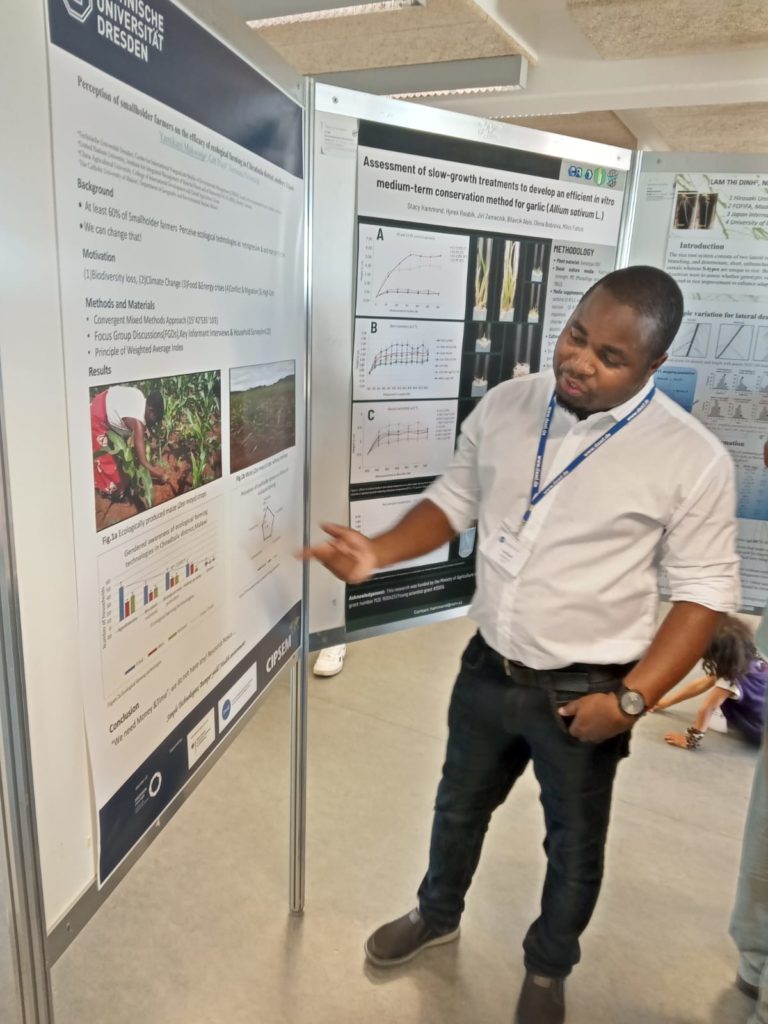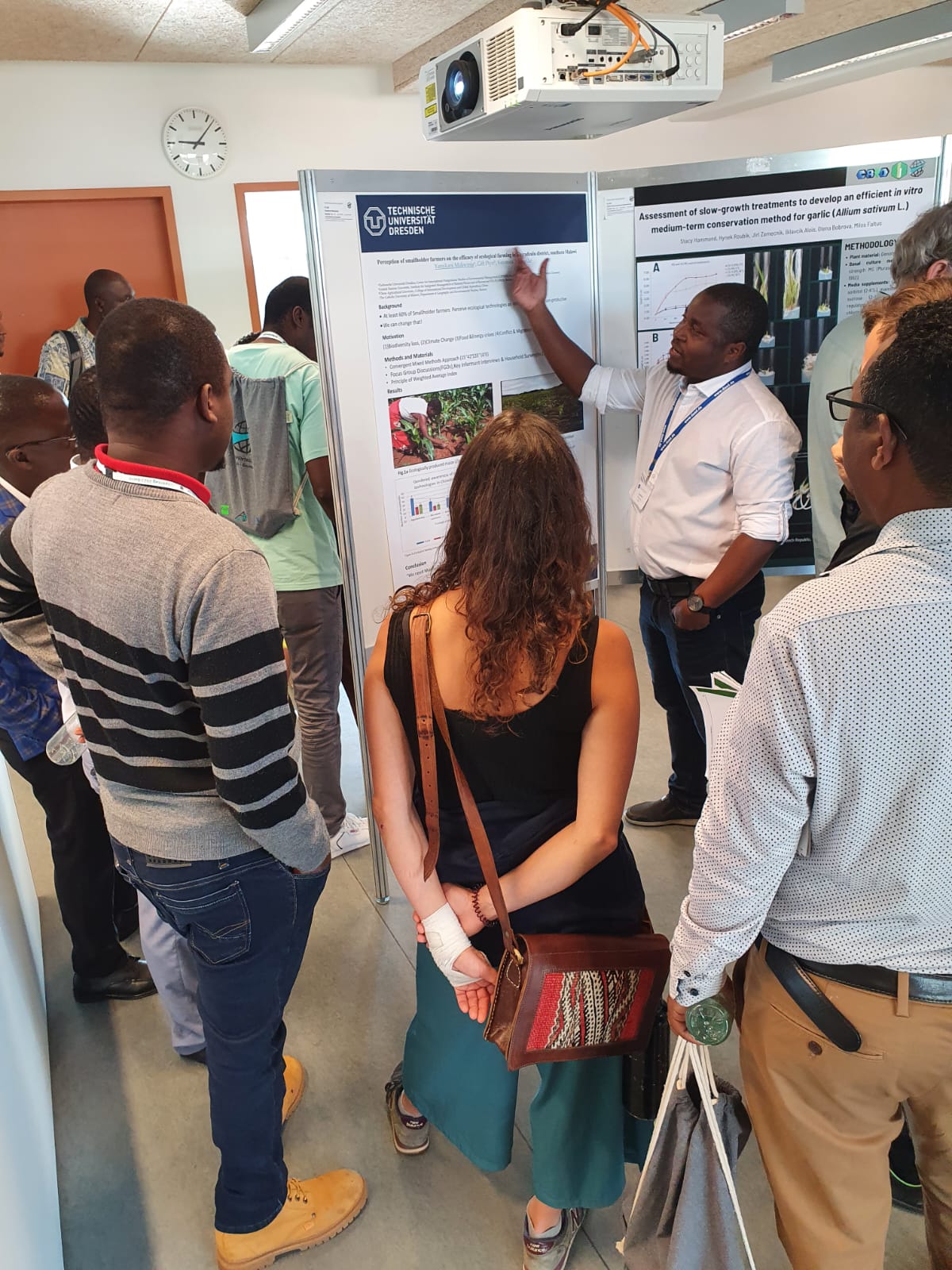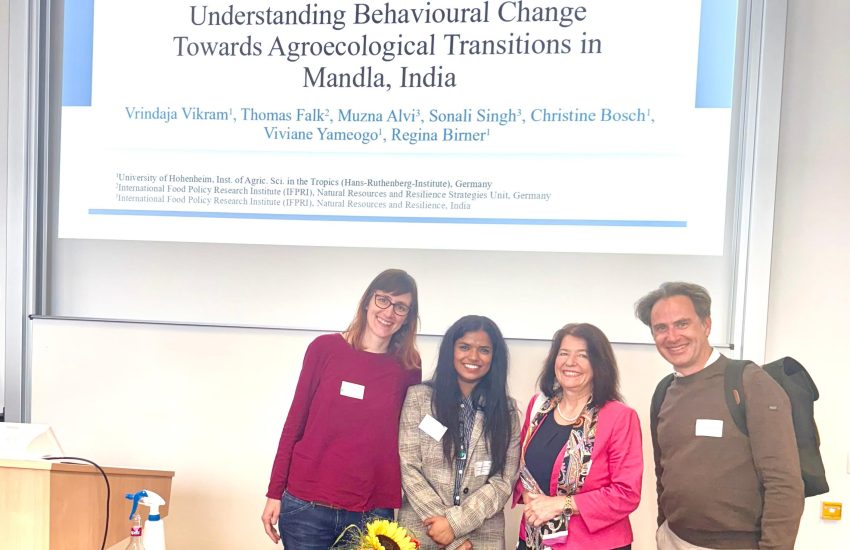Can simple ecological farming technologies save Malawi from hunger?
As the Tropentag 2023 conference approached its climax, participants had the opportunity to browse posters and listen to several oral presentations from different scientists across the world. The projects unveiled a plethora of intriguing results that may hold the capacity to shape the world’s food security and agriculture trajectory. Among the many exposed studies, a poster from Malawi, titled “Perception of smallholder farmers on the efficacy of ecological farming in Chiradzulu district, southern Malawi”, with its eye-catching format and simple language, caught the attention. “At least 60% of smallholders perceive ecological farming technologies as retrogressive and non-productive,” added the co-researcher of the poster, Yamikani Makwinja. According to him, the majority of sub-Saharan countries, including Malawi, heavily rely on cereals such as maize as their staple food. However, climate change and poor farming practices have led to soil degradation, hindering smallholder farmers’ ability to increase maize production. The problem has been compounded by the escalating costs of inorganic fertilizers, which smallholders have to bear. This practice also led to high transactional costs within the value chain system and resulted in the increment of food prices.

Malawi, a beautiful sub-Saharan country, is highly dependent on inorganic fertilisers imported from the global North. As a consequence, supply chain disruption, like the one caused by the Ukraine crisis, creates a bottleneck, where fertilizers become scarce and expensive, which exacerbates food insecurity in the region. Yamikani said that the price of fertilisers increased by 400% only from 2020 to 2023, a time when the smallholder farmers also suffered from the shocks induced by the COVID-19 pandemic and tropical cyclone Freddy. “Farmers needed time and money however both resources were not available“, he argued. To address the issue, there is an urgent need for a radical sustainable approach for the farmers. Ecological farming has been proposed as a cost-effective and sustainable alternative to conventional farming that can improve soil health, and reduce the dependence on increasingly expensive inorganic fertilizers. However, despite the potential benefits, smallholder farmers in many sub-Saharan African countries, including Malawi, have proven to be slow to adopt ecological farming practices. To understand why, researchers identified the ecological farming technologies and examined the perception of smallholder farmers on the efficacy of ecological farming in Traditional Authority Mpama, Chiradzulu district in Malawi.
“Our study involved five focus group discussions and structured interviews with 120 smallholder households, and we analyzed the data using qualitative approaches and the Principle of Weighted Average Index”, Yamikani said. Furthermore, they have identified a significant association between the socioeconomic characteristics of the respondents and community perceptions. To overcome these barriers, the study suggests the implementation of interventions that improve knowledge levels, attitudes, and behaviours of farmers through capacity building, sensitization, mobilization and mainstreaming of gender in all the interventions.



